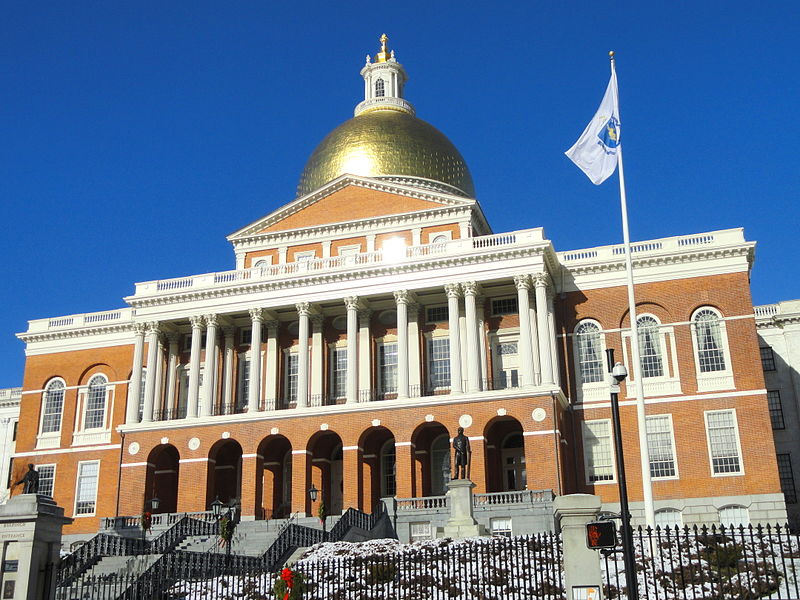
Parkside on A, a development project approved in 2017, includes 250,000 square feet of lab-ready space at 105 West First St. in South Boston.
With a 1.1 percent vacancy rate for lab space in the city of Boston, opportunities for the life science industry to grow appear to be almost as challenging as in inventory-starved Cambridge.
But there’s a big difference that bodes well for the capital city’s chances to build a life science cluster rivaling its brainy neighbor across the river: ample availability of development sites, particularly in the Seaport District.
Experienced developers including Related Beal, Alexandria Real Estate Equities and WS Development are testing the waters for lab projects in the Seaport and down the A Street corridor, potentially bringing millions of square feet of new projects to market in the next few years.
“Everybody in the Seaport now who has a site is talking about office and/or lab space,” said Mark Winters, an executive managing director at Newmark Knight Frank. “If Kendall Square remains tight and expensive they need to go somewhere, and obviously the Seaport is a very desirable location.”
8M More Square Feet Possible
Colliers International Boston estimates that the Seaport still has potential to accommodate another 8 million square feet of office and lab space, on top of the 5.1 million that’s been built over the past decade. The data includes properties controlled by Massport, the Army Corps of Engineers and private owners.
JLL Boston says lab space will comprise over 16 percent of the Seaport’s commercial space by 2020, up from 3 percent in 2010.
At the top of the short-term opportunities is Newton-based WS Development’s parcels off Congress Street, which are approved for 1.5 million square feet of office and lab space. The properties could be a good fit for Cambridge-based Foundation Medicine, which is seeking at least 750,000 square feet for expansion, according to a pair of commercial real estate industry sources.
Foundation Medicine, which was acquired by Swiss drug giant Roche last year for $2.4 billion, currently occupies 123,200 square feet at 150 Second St. in Cambridge and another 38,000 square feet at 10 Canal Park, with leases expiring in 2024 and 2020, respectively.

Foundation Medicine spokeswoman Meggan Whiteman declined to comment on specific real estate strategies but said via email that the company is “focused on cultivating an engaging and cohesive environment for our employees to support the important work we do for cancer patients. We are committed to maintaining a strong company presence in the Boston/Cambridge area.”
Yanni Tsipis, senior vice president for WS Development, said the firm is making life science growth a major focus of its remaining available sites.
“The Seaport sees the most forward-thinking and growing life sciences organizations making real estate decisions through the lens of attracting and retaining the best talent in the world,” Tsipis said in a statement.
Recent research by JLL and Cushman & Wakefield both ranked Greater Boston as the nation’s top life science cluster. Massachusetts led the nation with $15.5 billion in venture capital funding for life science companies since 2010, and local universities award more Ph.D. degrees in life science than any other state.
Lab tenants also can expect to save on rent in Boston. Average asking rents are $78 per square foot on a triple-net basis, according to Cushman & Wakefield research, compared with $88 in Cambridge.
Investment Spreads Down A Street Corridor
Another development parcel with permits in hand lies at 105 West First St., where CV Properties received Boston Planning and Development Agency approval in June 2017 for a 250,000-square-foot office and lab building. Marketing materials by CBRE for “Parkside on A” describe such features as innovation space, ground-floor retail and restaurants and multiple roof decks.
New York-based Ares Management acquired the property in April 2018 for $25 million. According to a pair of real estate industry sources, the property and development rights are now being marketed for sale.
And Alexandria Real Estate Equities, which owns 6.4 million square feet in Greater Boston, predominantly leased to life science companies, is partnering with Boston-based Anchor Line Partners on plans to redevelop an industrial parcel at 99 A St. with a 210,000-square-foot life science building. The partnership is expected to begin its BPDA permitting later this winter.

Steve Adams
The pending sale of 6.5 acres of surface parking lots owned by Procter & Gamble on A Street will open up another opportunity for a large-scale mixed-use development. The property is under agreement to Related Beal, according to a report in the Boston Business Journal.
“You have the best life science developers in the world purchasing land in Boston for future developments,” said Cushman & Wakefield Vice Chair Michael Joyce. “If you look at the whole A Street corridor, you could build a small city there.”




 |
| 

